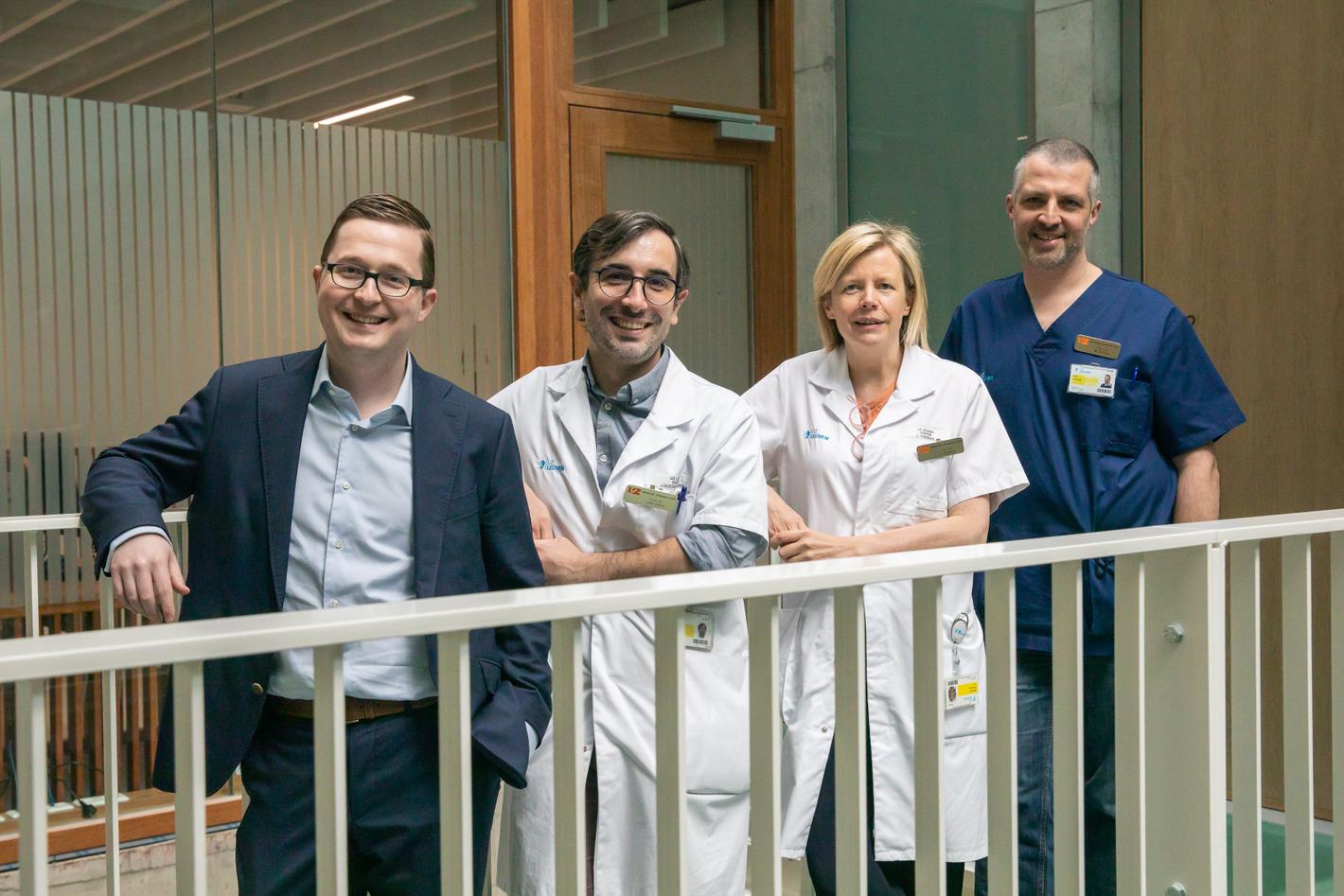An estimated 1 in 200 Belgians suffer from chronic intestinal inflammation, including Crohn's disease and colitis ulcerosa. They have to take long-term medication to keep their disease under control and to prevent typical symptoms such as abdominal pain, diarrhoea and general malaise. The past twenty years there has been big advance in the development of biological therapies based on antibodies, but unfortunately these don't work for all patients and they often become less efficient over time.
Half of the patients completely symptom-free
The past two years, large international phase 3 trials with risankizumab, mirikizumab en upadacitinib were completed succesfully and the drugs were approved by both the European (EMA) and American (FDA) medication agency for use in clinical practice. What's more, since today risankizumab will be reimbursed by the Belgian health insurance and is widely available for patients with Crohn's disease.
The new drugs can be real 'game changers', because they appaer to be a lot more powerful than most older medication. They also have less adverse effects.Prof. dr. Marc Ferrante, gastro-enterologist at UZ Leuven
Prof. dr. Marc Ferrante, gastro-enterologist at UZ Leuven and (co)principal investigator of the risankizumab studies: “The new drugs can be real game changers, because they appear to be a lot more powerful than most older medication. After a year, about 65% of the study population that was administered risankizumab, felt remarkably better with the treatment, more than half was even completely free from complaints. What's more, the new treatments with risankizumab and mirikizumab seemed to have noticably less side effects. - safety is higher than we've ever seen. Because our patients often have to take inflammatory drugs for the rest of their lives, it is crucial for the treatment to have as little side effects as possible.”
Objective decrease in intestinal inflammation
Apart from measurements of the (subjective) experiences of the patients (such as abdominal pain and diarrhoea), it was also the first time that endoscopic images of the intestinal inflammation of Crohn's disease were taken into account. These also showed a very favourable evolution with a marked decrease in the severity of ulcers at the level of the intestinal mucosa in patients who received the new treatment.
Significant expansion of offer
In the coming months the reimbursement of upadacitinib for Crohn's disease and of mirikizumab for colitis ulcerosais is still expected. This significantly expands the range of treatments.
Prof. dr. Ferrante: “This is very positive news for our patients, but it also brings forward the following questions. How are we going to decide which medication to use on whom? Does one treatment maybe work better than the other in a certain type of patient? We need additional studies that directly compare the treatments with ones another and also applied to the different patient profiles.” The KU Leuven and UZ Leuven research group for chronic inflammatory bowel disease (IBD) – that provides follow-up for some 4,000 patients – has been at the forefront of this research for years.
“We attach great importance to shared decision making: the choice for a certain type of treatment is virtually always done in consultation with the patient. Together we discuss (dis)advantages of each drug, such as how quickly it will work, what the possible side effects are and the way of administration, and we also gauge those aspects that are important for the patient personally.”
Important note: because the new drugs are more expensive, they can only be used a second line treatment for now, in case the first line treatment doesn't, or no longer, works.

De doctors of the Leuven IBD team: prof. dr. Bram Verstockt, prof. dr. João Pedro Guedelha Sabino, prof. dr. Séverine Vermeire and prof. dr. Marc Ferrante (© UZ Leuven)
